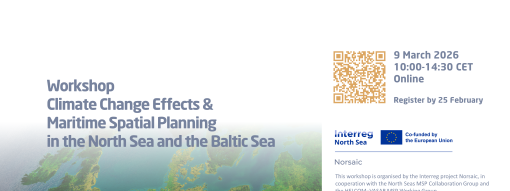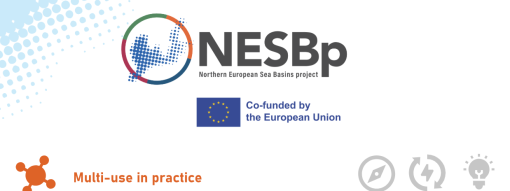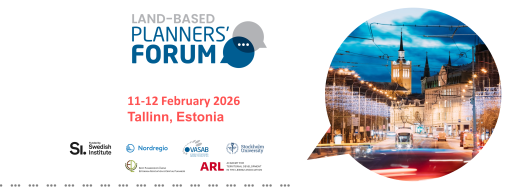
VASAB webinar on sharing the knowledge: “Coherence across land-sea border – practices and experiences from the Baltic Sea”
VASAB webinar on sharing the knowledge: “Coherence across land-sea border – practices and experiences from the Baltic Sea”
About event
VASAB webinar on sharing the knowledge: “Coherence across land-sea border – practices and experiences from the Baltic Sea” was held on 4 November 2021 from 9:00-12:00 CET.
Coherence across the borders and plans has been a focus of spatial planning community in the BSR for many years. With maritime spatial planning (MSP) on board, this topic (and land-sea interactions particular) has become more visible and crucial in spatial planning. Webinar shared existing practice and experience on integrated terrestrial and maritime spatial planning. It also discussed how such approach can be beneficial, what are the main challenges and how to facilitate integration of terrestrial and maritime spatial planning and take into consideration much more land-sea interactions.
WEBINAR REPORT AND FULL AGENDA ARE AVAILABLE BELOW!
WEBINAR PRESENTATIONS ARE AVAILABLE BELOW!
Workshop agenda (CET)
Opening of the webinar
Welcome by VASAB Chairman Dainius Čergelis
Sustainable Cities by the Sea - Case study of a potential Nordic mission area
Presentation by Klaus Skytte, Nordic Energy Research
Q & A
Challenges and enablers of working across the land-sea boundary in cross border planning: experiences from around the Baltic Sea
Presentation by Andrea Morf, Nordregio; Swedish Institute for the Marine Environment; Co-chair of ICES Working Group for Marine Planning and Coastal Zone Management
Q & A
Governing land-sea interactions in land-sea interface: messages from Interreg “Land-Sea-Act” project
Presentation by Kristīna Veidemane, BEF-Latvia
Q & A
Coffee break
Perspectives of integrated terrestrial and maritime spatial planning in Lithuania. Practical case studies
Presentation by Donatas Baltrušaitis, Architect and Urban Planner
Q & A
Discussion
- What are approaches in other BSR countries regards the integrated terrestrial and maritime spatial planning?
- What are the benefits of integration of terrestrial and maritime spatial plans?
- How to promote more harmonized methodology/guidelines of elaboration of integrated spatial plans in different countries? Would such methodology/guidelines be helpful?
- What can be done (legislation, other measures), to facilitate integration of terrestrial and maritime spatial plans and take into consideration much more land-sea interaction?
Closing the webinar
Closing by moderator
Files
Webinar agenda
DownloadWebinar report
DownloadPresentation 'Sustainable cities by the sea - Case study of a potential Nordic mission area' by Klaus Skytte
DownloadPresentation 'Challenges & enablers of working across the land-sea boundary in cross-border planning: experiences from around the Baltic Sea' by Andrea Morf
DownloadPresentation 'Governing land-sea interactions in land-sea interface: messages from Interreg "Land-Sea-Act" project' by Kristina Veidemane
DownloadPresentation 'Perspectives of integrated terrestrial and maritime spatial planning in Lithuania. Practical case studies' by Donatas Baltrušaitis
Download

